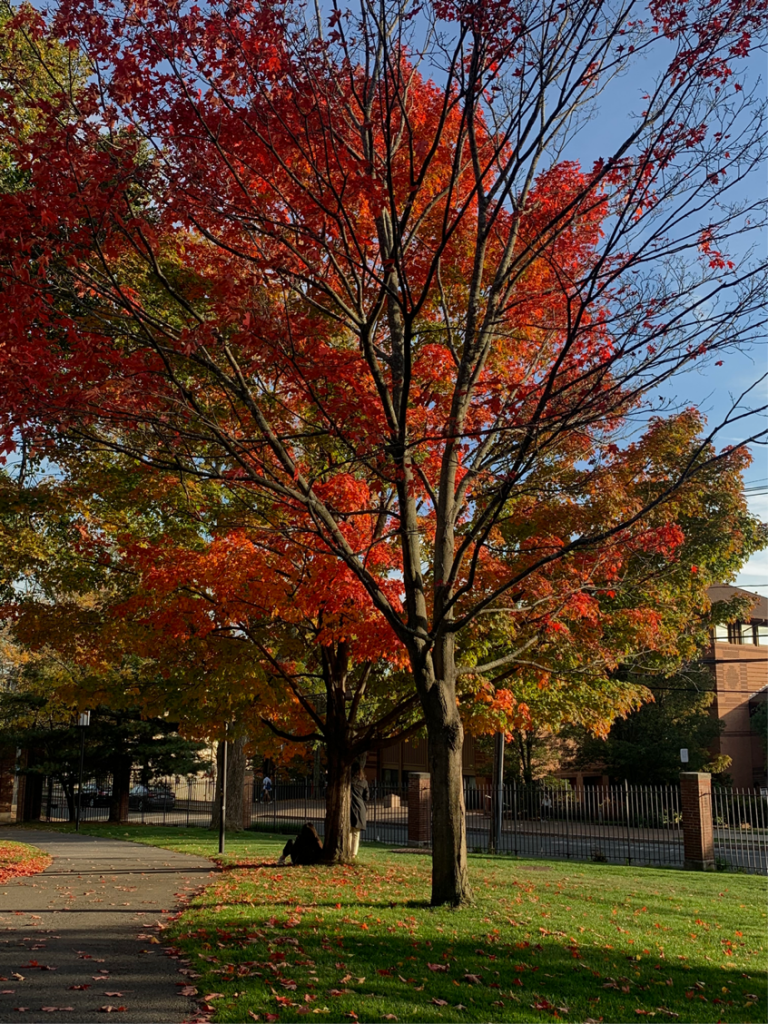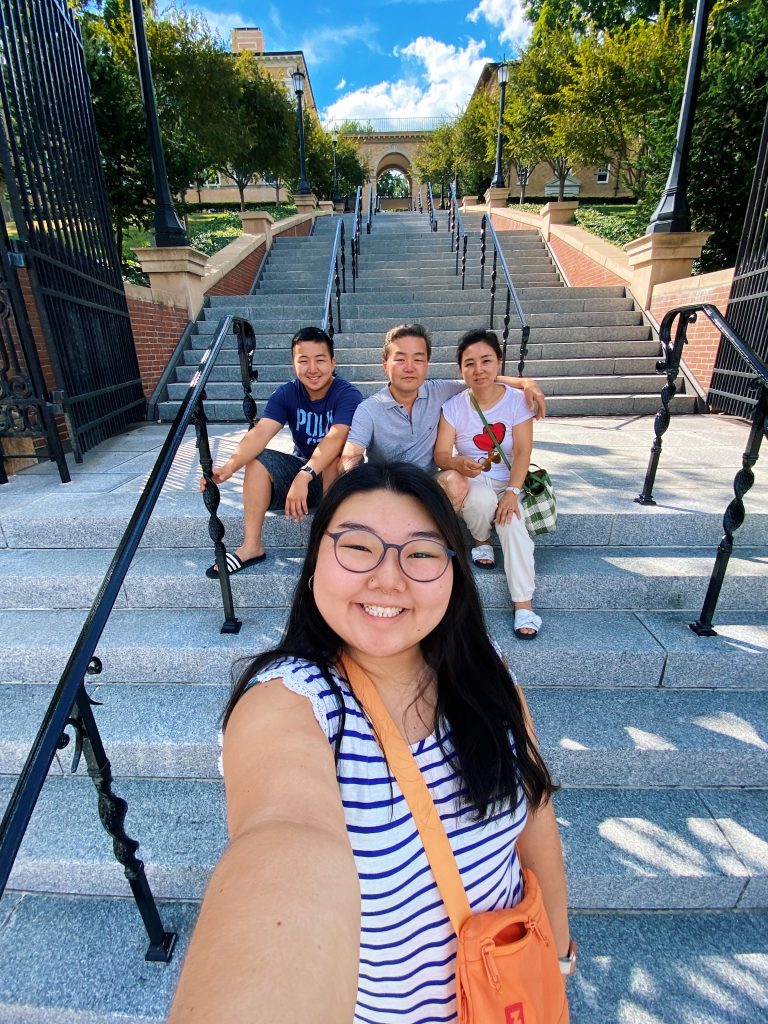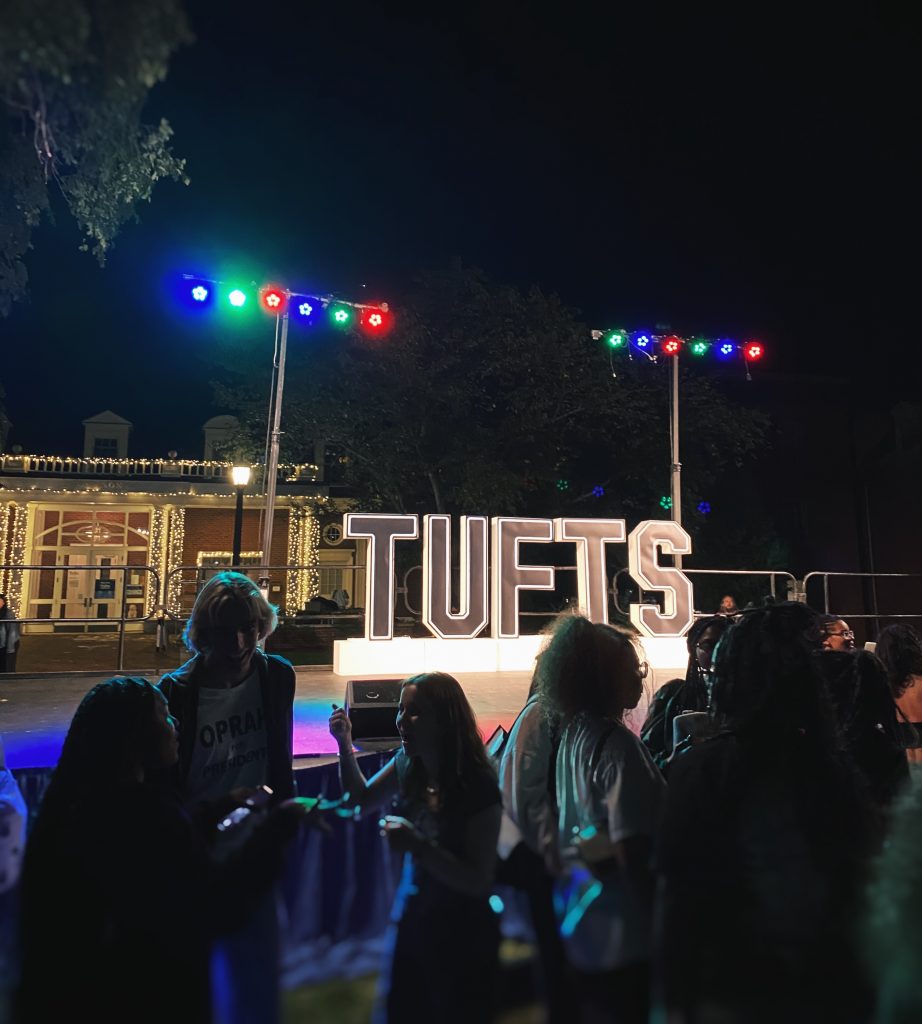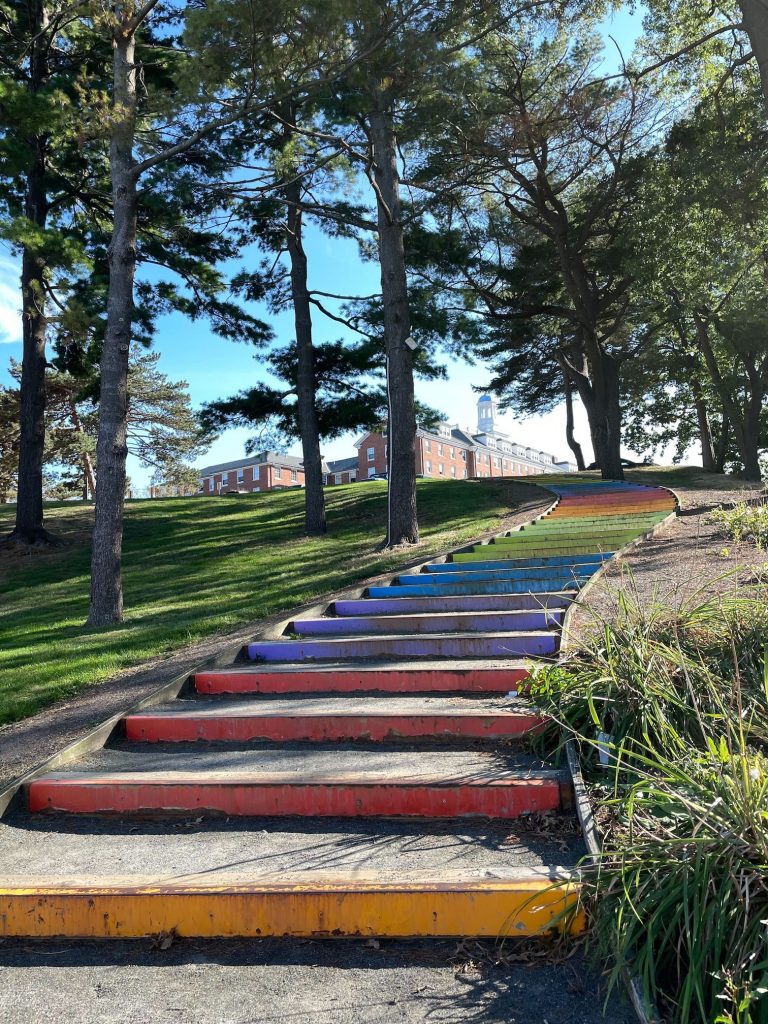Qi Pan, History M.A. Candidate
As a student in the humanities, I am a book lover who likes to read all kinds of books, and my entrance to Tufts was a result of serendipity because of two books. The first, a collection of prose essays by Haruki Murakami, refers to his time teaching at Tufts. It made me curious about Tufts, and led me to search for Tufts online. And I found out that the Tufts motto is Pax et Lux. The unique mention of “peace” in the motto—which I understood from my one year of Latin study—was attractive to me as a humanities student. The second book was recommended by my good friend who studied history in a famous Chinese university. My friend and I are both interested in feminism. In a women’s history course, her professor led them to discuss the book Crossing the Gate to investigate daily life of ancient Chinese women. Coincidentally, this book was written by Xu Man, a professor at Tufts. I was excited that a Chinese scholar could be so proficient in English academic writing about Chinese history while gaining a high reputation in China. This definitely motivated me to apply to Tufts. Ultimately, Professor Xu Man has become my current mentor in the Department of History at Tufts.
Besides these two books, coming to Tufts was also out of practical considerations. My undergraduate program focused on liberal arts education, so I took many courses related to politics, philosophy, and sociology beyond my history major. Although my interest in a wide range of subjects enriched my experience and thinking, it also made me want to gain more skills in the area of historical knowledge acquisition. Therefore, when application season came, I decided to apply for the history master’s program to learn transnational history and historiography more systematically and improve my academic skills. At this point, Tufts’ MA in History program came into my consideration. Compared with the one-year programs in the UK and Singapore, Tufts’ two-year program gave me plenty of time, with more complete academic training. As one of the top universities, Tufts also holds rich academic resources and provides abundant opportunities in academia. My mentor from my bachelor’s degree also highly recommended Boston as a city to study the humanities in. Therefore, I finally decided to come to Tufts to experience this top academic training opportunity.
Although there are only ten new students in the History department, all of them have diverse backgrounds and different research interests, such as European history, women’s history, history of ideas, etc. In the mandatory historiography course, I have listened to the speeches of classmates from Harvard College and marveled at the questioning ability of doctoral candidates. As the only Chinese student, I was initially nervous in and out of class, but my professors and classmates were all friendly and open-minded. They have encouraged me, praised my presentations sincerely, and invited me to the party warmly. In addition to studying history, I’ve also taken part in a writing workshop held for international students from which I got to know some master’s and doctoral students from different disciplines.
Since coming to Tufts, I’ve been to Boston several times, taken a duck boat ride with friends, and gone whale watching. There are many opportunities to see musicals, concerts, baseball games, etc. in Boston, which made my Chinese classmates envious. Life in the suburbs of Medford is good and being at school is comfortable as well. As I am a liberal arts student, I am frequently in Tisch Library to read books and search for sources. When I am tired or stressed, I usually take a slow walk to enjoy the beautiful campus scenery, see the squirrels and rabbits on the lawn and take a nap in the chairs under the shade. The campus under the sun in September reminded me of summer dreams in many books, and the red leaves in autumn are also so pleasing. Thanks to my decision to Tufts, I am satisfied with my study-life balance in a foreign country.








